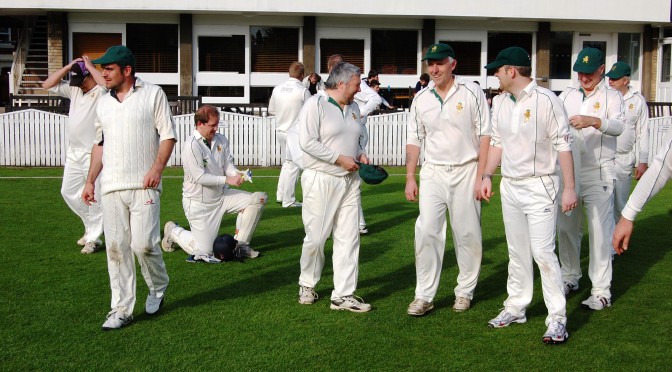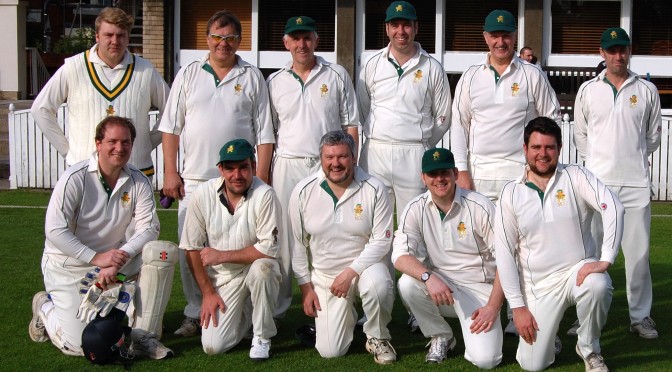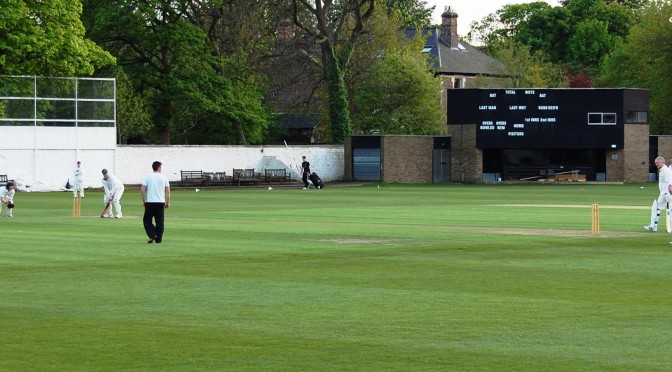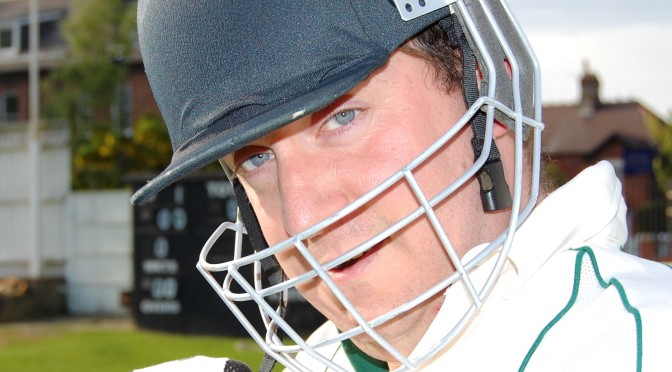After a narrow defeat against Sparta on Monday, Mallards regathered to face a Durham Staff team keen to gain revenge for our win there in May.
Skipper Wood again won the toss and again put the opposition into bat hoping to repeat the previous game’s successful run chase and Browne got off to another good start with his customary early wicket, a somewhat fortunate deflection from thigh pad onto off stump seeing the end of Wrede.
At the other end Cleaver bowled tightly against his old team-mates without much luck and it was Browne who picked up the second wicket as he finally found the right line to trap Wastell lbw for nine.
Despite the early wickets Durham skipper Swift was batting well and after six overs the home team reached a sturdy 46-2.
Another expensive over from Browne saw him finish his spell with 2-40 but Cleaver redressed the balance in his final over, removing Swift for 21 and finishing with 1-23 from his four overs.
Wisbach took over from Browne and the bowling change paid immediate dividends when, from his first ball, McGuiness took an astonishing two-handed goalkeeper-style catch from a huge straight drive to leave the Mallards fielders speechless and the unfortunate batsman shaking his head on a slow trudge back to the pavilion (poetic licence there as we were banished to the pitch across the bridge where the facilities are somewhat absent, i.e for ‘pavilion’ read the edge of the pitch where the kit was scattered.)
With Dunhill replacing Cleaver the bowlers started to bring the scoring rate down a little but after 12 overs Durham were still very handily placed on 89-4.
Cox replaced Wisbach and immediately caused the Durham batsmen a few problems without getting the early wicket he deserved but only conceding seven runs from his first two overs. With Dunhill finishing a steady spell with 0-25 the scoring rate continued to drop as the home side reached 109-4 from 16.
The 17th over saw Cox finally get his due reward as first Nitsch took a sharp catch at point to dismiss Shaw for 19 and then two balls later he bowled Whitfield for 28 to reduce the home side to 116-6. The returning Wisbach continued the fightback as a top-edged pull found Steel at fine leg to make it 122-7.
Mallards, and in particular Cox, were on fire now as first the bowler removed Vishal, clean bowled for 5 and then Browne pouched a comfortable catch in the covers as the bowler finished his fine spell of 4-14 with a double-wicket maiden and Durham crawled to 123-9.
The visitors fine bowling and fielding display, as exemplified by particularly energetic fielding from Scutt throughout, was capped by Wisbach taking his third wicket and Durham’s last from the second ball of his final over, Nitsch taking another comfortable catch as the home side were dismissed for 124, the bowler finishing with an excellent 3-17 from 3.2 overs.
Having chased 150 in the previous winning effort at MaidenCastle, Mallards were firmly in the driving seat but as investment companies everywhere will warn you ‘past performance is not an indicator of future results.’
Steel and Nitsch lead the reply with Steel gaining an immediate reprieve as he mistimed a pull from an obvious no ball straight to a fielder. Unfortunately the square leg umpire Cleaver had dozed off and it took several minutes and a polite(!) enquiry from the astonished batsman for him to concur that the no ball was indeed obvious.
Sadly the early reprieve didn’t really help as in the second over Steel repeated a similar shot to a non-no-ball and was caught for 1.
Bad then became worse as the third over saw both Hall and Scutt come and go without troubling the scorers and Mallards slump to 10-3.
Nitsch and McGuiness managed to stem the tide a little and, with the help of some erratic bowling and a number of wides, moved the scoreboard along to a more respectable 32-3 from five overs to provide a platform for the drive to victory. That didn’t quite happen.
Firstly Nitsch was clean-bowled for what turned out to be an impressive 9 and then Wood was immediately run out without scoring, his attempt to return for a second bye thwarted by an unlikely direct hit from the boundary.
A miserable 35-5 then, unbelievably, became a much worse 37-8 as McGuinness was clean bowled for seven and the next over saw Cox and Browne both depart for 1 and 0 respectively, both clean-bowled by Boothroyd who now had figures of 2-1 from two overs (the 1 being a wide!)
Fortunately Wisbach, the match-winning hero from the previous victory was next in. Unfortunately he was also next out, scooping a simple return catch to the new bowler Vishal for 1.
The unexpected carnage suddenly left last men Cleaver and Dunhill at the wicket with nine overs still remaining and 85 needed for victory – and after the former’s batting heroics of the previous night it appeared that one of the great comebacks was on. Sadly such optimism was on the cusp of delusional. A couple of blocked overs aside the end was nigh and three overs later Cleaver was cleaned bowled for 3 to give Durham a sweet taste of revenge with a clumping 79-run win, leaving Dunhill unbeaten on 0 – a score replicated by five of his fellow batsmen.
The extent of the batting nightmare is best illustrated by the fact that Extras, with 24, wasn’t just top-scorer, as at Heaton on Monday, it was more than the 11 batsmen combined made with just 21 runs coming from the bat. A classic Mallards performance.









